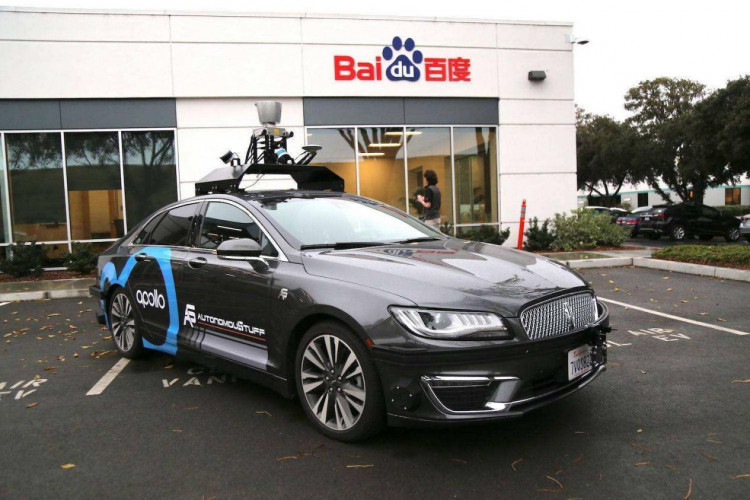A car that runs on its own without any human intervention - and no steering wheel? Why not? China has the capability to do just that, and more.
Baidu Inc presented its new self-driving vehicle with a detachable steering wheel on Thursday, with plans to utilize it for its robotaxi service in China next year.
The new model from the Chinese search engine giant will have a price tag of 250,000 yuan ($37,031.55) each, compared to 480,000 yuan for the previous version, according to a statement from Baidu.
At the Baidu World conference, Baidu's chief executive Robin Li stated, "This enormous cost decrease will allow us to deploy tens of thousands of autonomous vehicles throughout China."
Baidu did not divulge the new model's manufacturer.
Li stated that in the near future, taking a robotaxi will cost half as much as taking a traditional taxi.
The new high-tech vehicle will be Level 4 autonomous, requiring no human interaction, and will be equipped with eight lidars and a dozen cameras. Lidars are radar-like detection devices that employ laser light pulses instead of radio waves.
Elon Musk, the chief executive officer of Tesla, told investors at a conference in April that the company plans to begin mass production of a robotaxi without a steering wheel or pedals in 2024 and that a ride in a robotaxi will cost less than a bus ticket.
Waymo, a subsidiary of Alphabet Inc, unveiled a robotaxi without a steering wheel in 2021 and announced plans to roll out its "completely autonomous vehicles" in the United States in the following years.
However, manufacturers around the world are still awaiting regulatory approval before deploying autonomous vehicles on the road.
Baidu's Senior Vice President Li Zhenyu stated at a conference that the vehicle will hit the road without a steering wheel if Chinese authorities allow it, and that its driving capabilities are comparable to those of a human driver with over 20 years of experience.
Baidu, which founded its autonomous driving subsidiary Apollo in 2017, is one of a handful of Chinese corporations working to make driverless cars popular.
Pony.ai, which is sponsored by Toyota Motor, and WeRide, which has received investments from Nissan Motor and Guangzhou Automobile Group, are its competitors in this market.
Apollo Go, Baidu's robotaxi service, has operated more than 1 million vehicles in 10 Chinese cities since its start in 2020, and the company said in April that it has been granted permission to deploy driverless robotaxis on Beijing's open roads.






